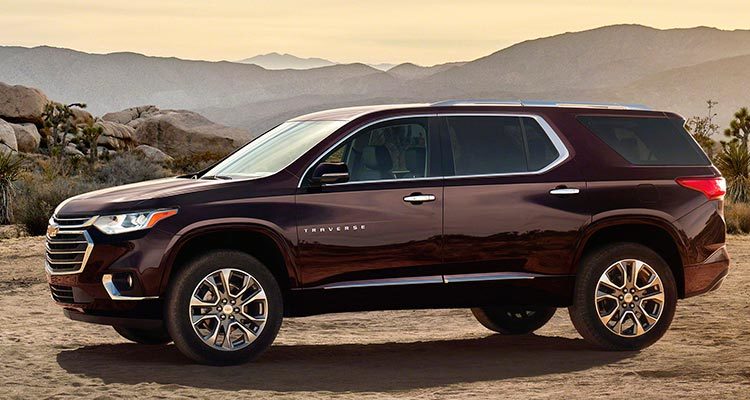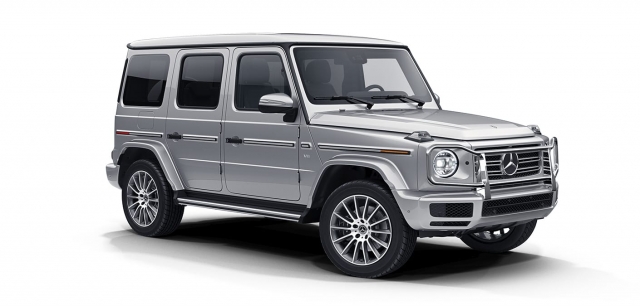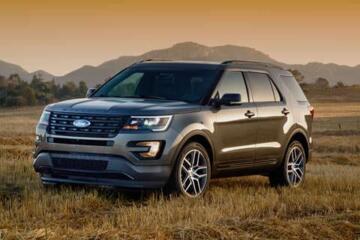SUVs are beautiful and they can be rightly called kings of the road. Some would even say you’re not really driving until you sit in the front seat of an SUV. And when you finally do, you can really see why they are so much more superior than a regular car.
But here’s the problem: SUVs, just like all things in life, are not always perfect. They’re not all built for the same purpose and you should know what you need them for.

Sponsored Listings
Luxury drive or off-road champion?
Before even looking at an SUV, you need to ask yourself this key question: Do you need an SUV, or do you want an SUV?
And that question should be followed up with: do I need to get this?
For those that need an SUV, most likely for work, comfort is not so much a priority. What should come first is how sturdy the vehicle is and how much space you have and if that space is enough for you. For drivers with this need, it may be worth looking into an SUV truck.
If you will mostly use your SUV in the city, more likely for trips to and from work, then you can look for more comfort, and sturdiness is not so much of a necessity. More importantly, though, city drivers should consider getting something smaller in order to deal with tight spaces and the ability to deal with short turn radiuses. If you really just want a vehicle that resembles an SUV, it might be better to get a crossover instead.
There is a key difference between SUVs designed for urban environments and those designed for off-roading – do not assume they are both capable of the same thing. Many cars designed for city roads are unable to handle off-roading, despite their size.
Of course, there are some SUVs that can handle both environments, but be prepared to spend a lot more.
Whatever reason you are looking for an SUV, it is important that it is reliable, whether it is a used car or a new car. Always start off by looking into reviews and look into what parts of the car wear out or break the soonest. If you are aware which parts are likely to be old and need replacing, you can look into the prices of replacing these parts to be prepared for that possibility.
On top of that, it is good to find out where you can replace these parts. This is especially important for foreign imports.
Basic necessities and useful options
Everyone’s needs are different, but you should never overlook basic features. Know what you want or need beforehand.
Seating
SUVs can often seat a good amount of people, typically up to five. Consider if you really need this. Some smaller versions may have less and if it is not a requirement, perhaps it’s not necessary. Additionally, if you are looking for a vehicle with a flexible amount of space, an SUV with fold-away seating can be a huge plus.
Parking
Many modern SUVs now have features that can help drivers park them. These can range significantly depending on the make of the vehicle. It can come in the form of a parking setting or simply just include cameras on the back and sides that can show you how far away objects are to your SUV or give you an audible alarm.
Safety features
You make think that SUVs are safer due to their sheer size, but this is not always the case. Due to their large size, weight and top-heavy structure, gravity is not always on their side, especially at high speeds. This can make for some brutal crashes. That’s why when looking at an SUV, make sure it has all required safety features.
Additionally, you can also look into settings that the vehicle may have that are designed to prevent such dangerous crashes.
Entertainment and connectivity
Being able to connect your phone to your car via Bluetooth is becoming increasingly common. Other SUVs may include HDMI or USB sockets, for example, to connect other devices, even gaming consoles.
Built for off-roading
Sometimes this is rare and admittedly you may not need it. Ideally, you should look for 4-wheel drive, a body designed to handle off-roading (they can come in many shapes and forms), and perhaps specific settings to deal with a tough terrain.

Budgeting appropriately
What budget do you have in mind? This can significantly limit the SUVs available to you
Are you prepared for a gas-guzzler? Check how economic this vehicle is, your budget should take this into consideration. If it is a used car, also have in mind how much you can spend on repairs.
Finally, consider what you can afford. When you have at last decided what SUV you want, get some quotes from different insurance providers.
Once you have looked into all of that, then you can be sure if the SUV fits your bill.
Purchasing the SUV
Emotions alone should not drive your decisions. Try the car out before making an offer. Be sure to put it to the test. You should also consider your experience with SUVs.
If this is your first SUV, be sure you know what to look for and if you’re not sure, perhaps bring someone with you who can help you with a second opinion. Be honest with yourself – if there are technical problems and you are not sure if you can fix them, maybe it’s not the best decision.
On top of that, if you have only driven smaller cars before, you may not be ready for the size. Consider smaller SUVs first.
Conclusion
Buying an SUV, or anything so large and expensive is a big decision. Perhaps one of the biggest you’ll ever make, only second to buying a house to most people.
It requires a lot of contemplation and research. Be scrupulous and make sure you have all the facts, and you can avoid disappointment. The last thing you want to do is to spend more than you intended on an SUV that is not exactly what you need.
Disclaimer: Our service is not intended to be, nor should it be construed as financial advice. We help our readers make informed decisions via impartial information and guides. Where appropriate, we may introduce partner companies who can provide services relating to financial products.












